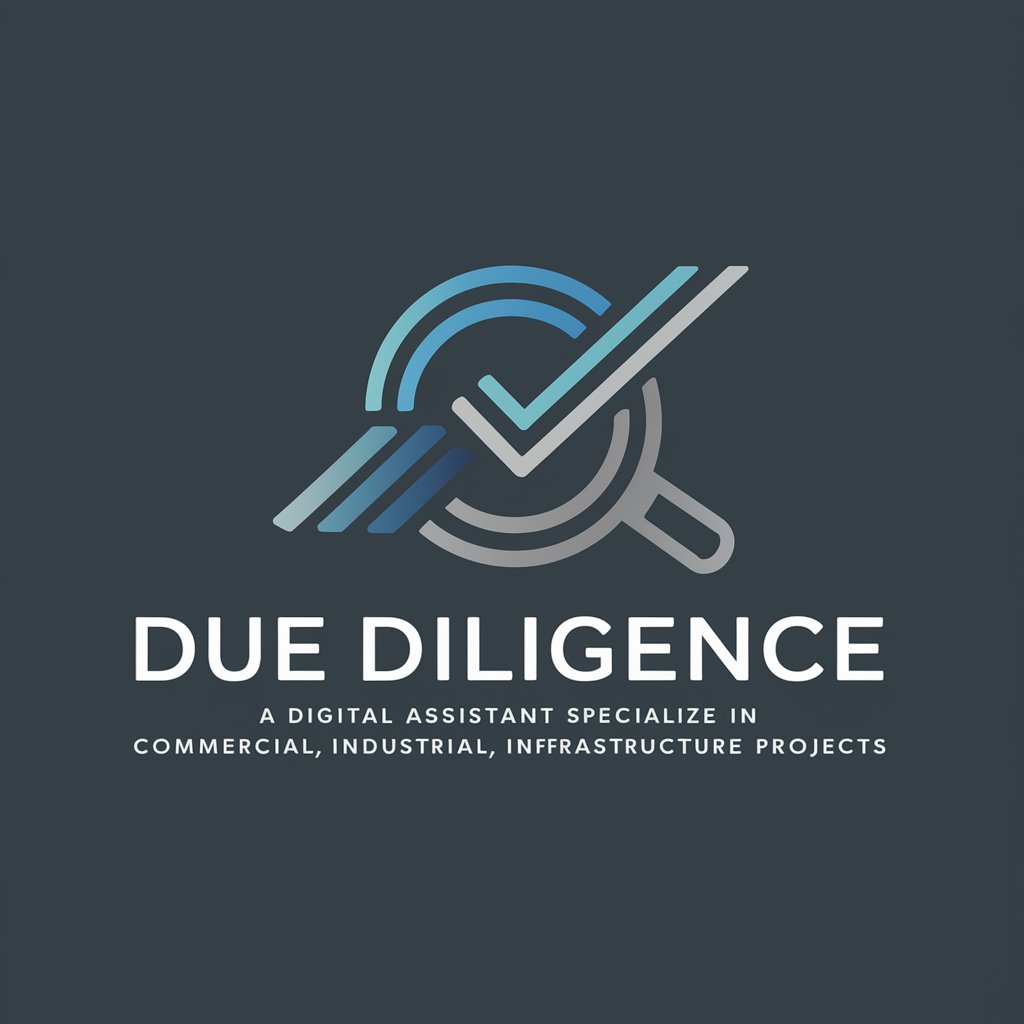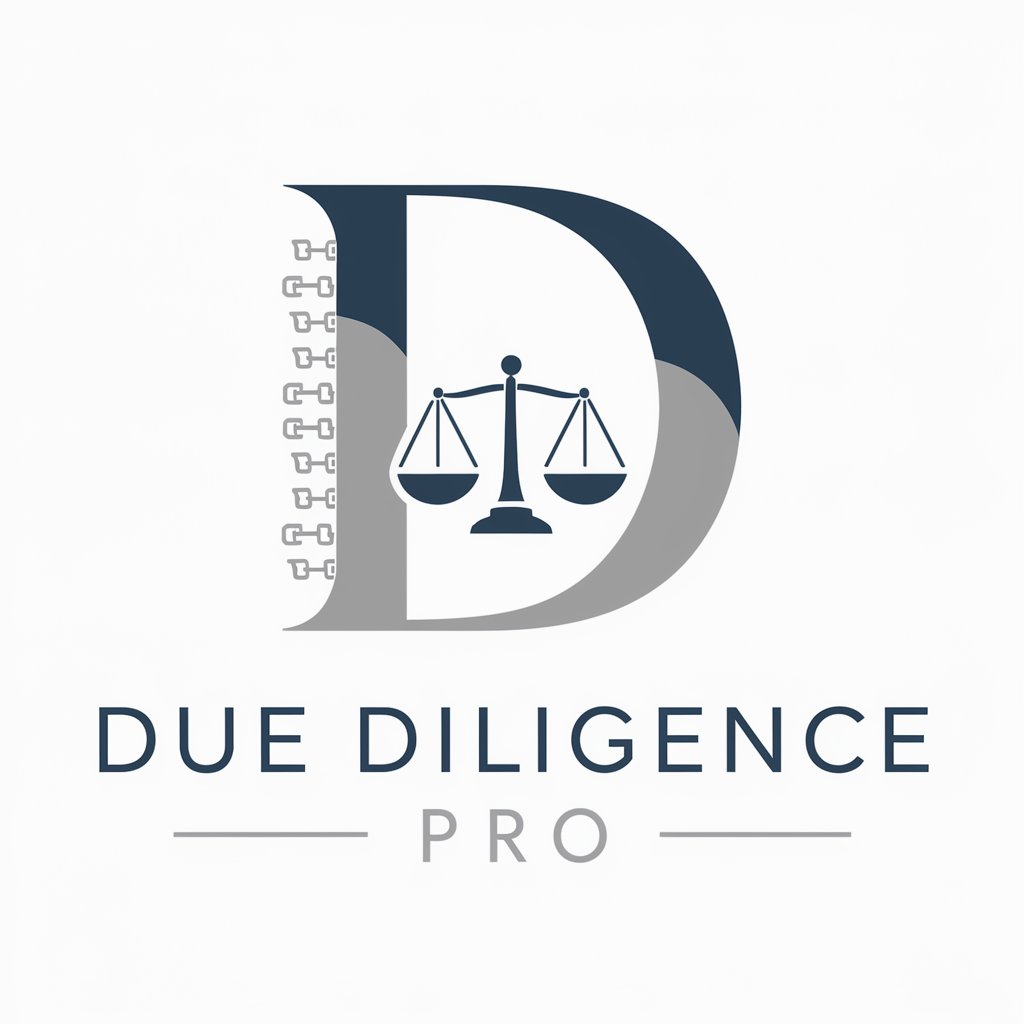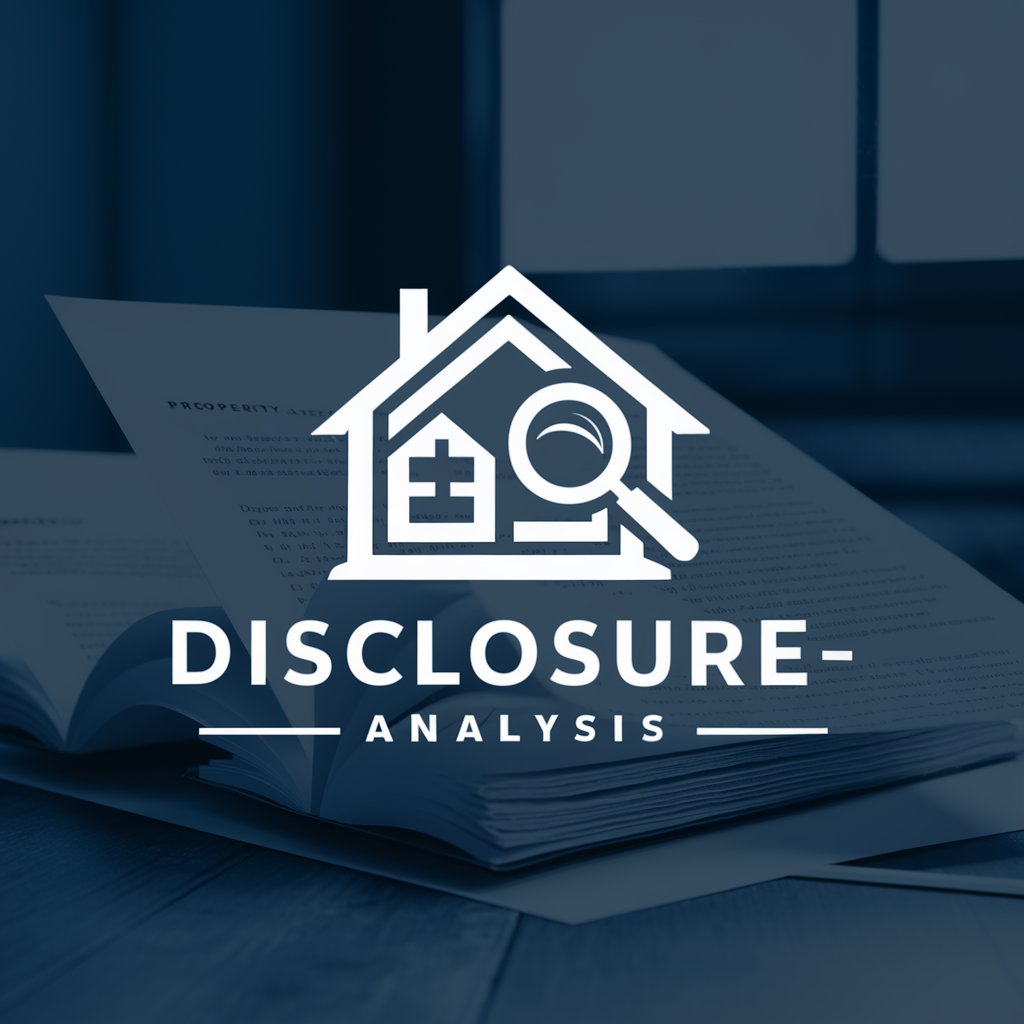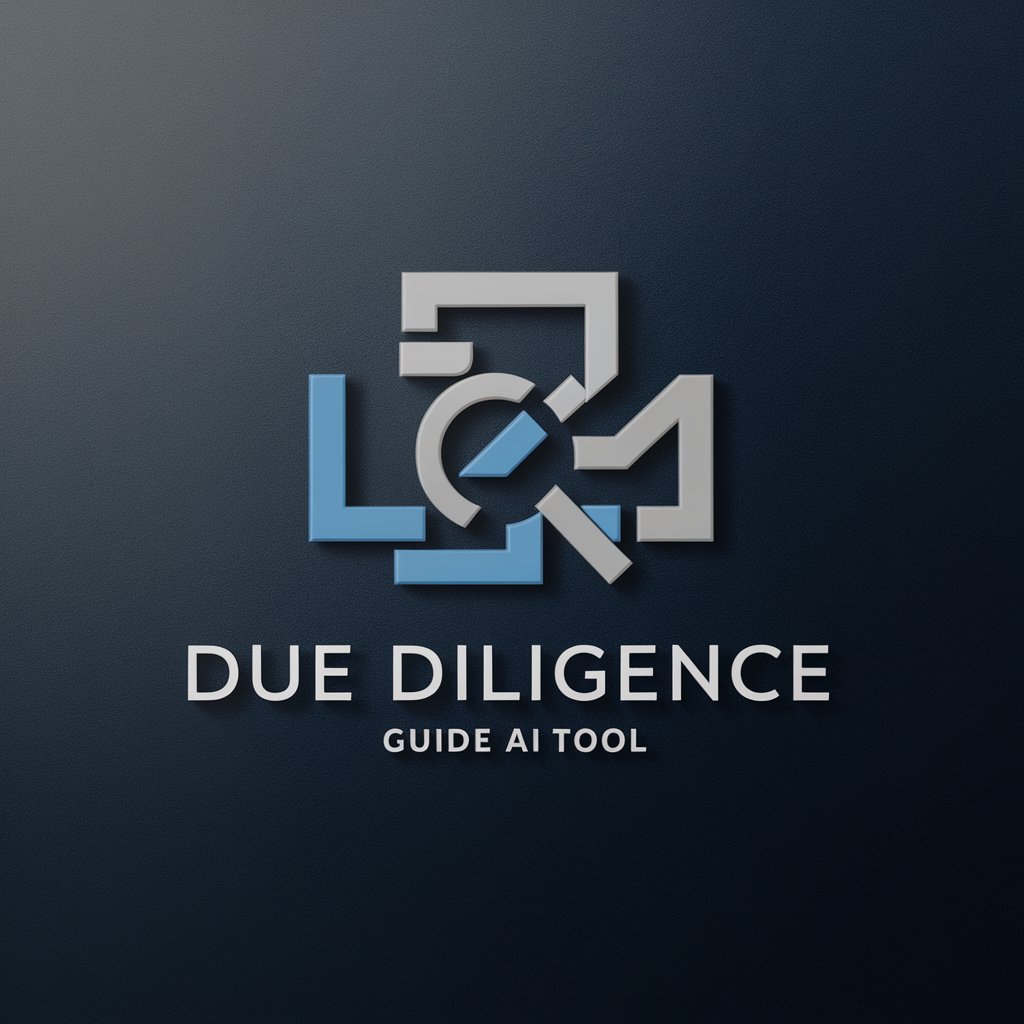
Due Diligence - Comprehensive Project Analysis

Hello! I'm Due Diligence, your guide for thorough project evaluation.
AI-powered Project Insight
Evaluate the environmental impact of...
Conduct a detailed financial analysis for...
Review the legal compliance for...
Assess the risk factors associated with...
Get Embed Code
Introduction to Due Diligence
Due Diligence is designed to assist users in conducting comprehensive evaluations of projects before decisions or investments are made. It systematically examines project-related information to ensure all aspects are understood and potential risks are assessed. This process is crucial in fields such as real estate development, infrastructure projects, and corporate acquisitions. For example, before purchasing a commercial property, a real estate developer would use Due Diligence to verify property details, assess legal compliance, and evaluate environmental impacts to mitigate any associated risks. Powered by ChatGPT-4o。

Main Functions of Due Diligence
Site Assessment
Example
Evaluating a potential site for a new industrial facility
Scenario
Assessing the site's location, accessibility, and suitability, including geographic data checks and local infrastructure analysis to determine if the area can support heavy machinery and transport needs.
Legal and Compliance Checks
Example
Checking compliance for a new commercial construction project
Scenario
Reviewing local zoning laws, building codes, and obtaining necessary permits to ensure the project meets all legal requirements before construction begins.
Risk and Financial Analysis
Example
Developing a new business park
Scenario
Conducting market analysis to assess demand for office spaces, analyzing cost implications of the development, and performing a risk assessment to ensure financial viability.
Environmental Impact Assessment
Example
Planning a new highway
Scenario
Studying the project's impact on local ecosystems, assessing potential pollution levels, and proposing mitigation strategies to reduce carbon footprint and preserve biodiversity.
Ideal Users of Due Diligence Services
Real Estate Developers
Benefit from site assessments, legal compliance reviews, and environmental impact studies to ensure projects are viable and compliant with local regulations.
Corporate Executives
Use detailed risk assessments and compliance checks during mergers and acquisitions to ensure a smooth transition and avoid potential legal and financial pitfalls.
Infrastructure Planners
Rely on comprehensive site evaluations, stakeholder coordination, and environmental assessments to plan and execute large-scale projects such as bridges, roads, and public facilities.

Guidelines for Using Due Diligence
Initial Access
Visit yeschat.ai to start a free trial without needing to log in, and without requiring a subscription to ChatGPT Plus.
Define Your Objective
Identify the specific project or analysis you intend to undertake. Clearly defining your goals helps tailor the tool's capabilities to your needs, ensuring a more focused and effective due diligence process.
Gather Necessary Information
Collect all relevant documents and data related to your project. This may include legal documents, financial records, environmental studies, and project plans to enable comprehensive analysis.
Engage with the Tool
Input your project details into the tool. Utilize the structured steps provided by Due Diligence to navigate through your project's evaluation, such as site assessments, legal compliance checks, and risk analysis.
Review and Iterate
Analyze the reports generated by Due Diligence. Provide feedback and refine your queries to dive deeper into specific areas, enhancing the precision of your project's due diligence review.
Try other advanced and practical GPTs
IVF Due Calculator
Empowering Your Fertility Journey with AI

EcoSage AI
Cultivate sustainability with AI

IDEAfier - U.S. Constitution & Dec_Of_Independence
Deciphering history with AI-powered precision.

Financial Independence Retire Early (FIRE) Guide
Empowering your journey to financial freedom with AI.

Financial Independence Guide
Empowering Your Financial Independence with AI

FIRE Retirement Calculator
Achieving Early Retirement with AI

Due diligence
Enhance Your Texts with AI

My Homework is DUE
Tailor Your Tone, Enhance Your Writing

AMC Stock Due Diligence
Empower your investment with AI-driven AMC analysis

Due Diligence Pro
Empowering Investment Decisions with AI

Human Rights Due Diligence Advisor
Navigate Human Rights in Business with AI

Crypto Fast Due Dil
Empowering crypto investments with AI-driven insights

Detailed Q&A on Due Diligence
What types of projects is Due Diligence best suited for?
Due Diligence is designed for commercial, industrial, and infrastructure projects. It efficiently handles evaluations related to site selection, legal compliance, financial viability, and environmental impact for these types of projects.
Can Due Diligence assist with legal compliance checks?
Yes, the tool facilitates comprehensive legal and compliance checks. It can request and review zoning maps, regulatory guidelines, and building codes to ensure that your project complies with all local laws.
How does Due Diligence handle environmental assessments?
Due Diligence evaluates the environmental impact of projects by examining sustainability reports, carbon footprint projections, and other environmental studies. This ensures the project meets environmental conservation standards.
Is Due Diligence useful for risk management?
Absolutely. The tool conducts a detailed risk assessment covering market, environmental, and financial risks, providing a robust framework to identify potential challenges and mitigate them effectively.
What is the process for engaging stakeholders with Due Diligence?
Due Diligence helps in coordinating with various stakeholders like environmental consultants, architects, and engineers. It facilitates communication planning and information gathering to support informed decision-making.




